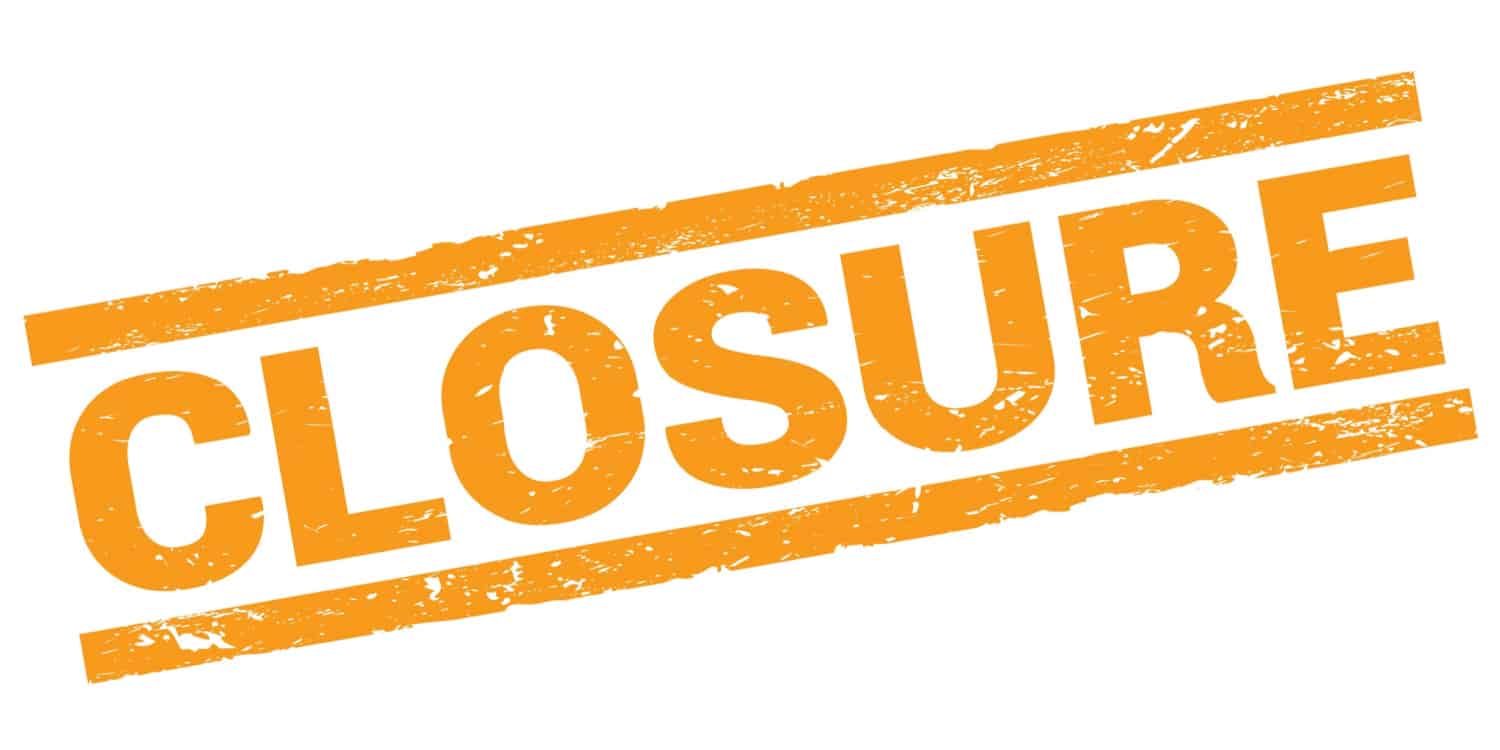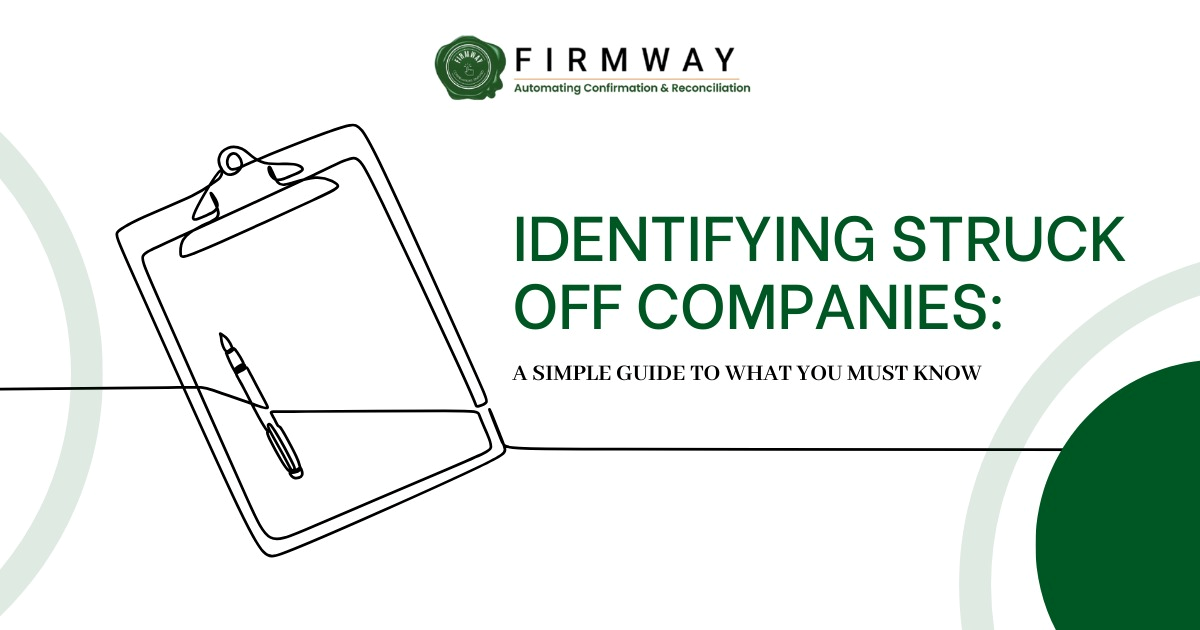Trick Actions In the Compulsory Strike Off Refine
Trick Actions In the Compulsory Strike Off Refine
Blog Article
Following Regulatory Responsibilities: Key Factors for Compulsory Strike off Application
From careful documents techniques to positive communication with regulatory authorities, there are key factors that companies have to take into consideration to navigate this procedure efficiently. By understanding the subtleties of regulatory compliance and the effects of non-compliance, companies can guard their operations and online reputation.

Regulatory Compliance Assessment
When carrying out a regulative conformity evaluation, it is essential to systematically examine and examine all pertinent regulations, regulations, and guidelines that refer to the particular market or operation in concern. By completely checking out the lawful structure, services can make sure that they recognize their commitments and are outfitted to maintain the needed requirements stated by regulative bodies.
During the assessment process, it is crucial to identify any kind of voids in between regulatory needs and existing methods. This space analysis permits companies to identify areas of non-compliance and take rehabilitative activities to reduce risks. first gazette notice for compulsory strike off. Carrying out an extensive review makes it possible for business to develop interior controls and protocols that straighten with regulative expectations.
In addition, a regulative conformity evaluation functions as a positive measure to protect against prospective offenses that might cause expensive fines or reputational damage. By remaining abreast of regulatory modifications and continuously evaluating their compliance condition, businesses can promote a culture of adherence to moral requirements and legal needs. Eventually, a detailed regulatory conformity analysis is foundational in advertising functional stability and sustainability.
Documents and Record-Keeping
Ensuring thorough documents and exact record-keeping techniques is a foundation of regulative compliance in any type of sector. Correct documentation not only help in fulfilling legal needs however likewise serves as an important device for internal surveillance and decision-making processes. Organizations must develop durable systems for documenting crucial activities, deals, and choices to make sure transparency and accountability.
Preserving accurate documents is important for demonstrating compliance during governing audits or investigations. Records ought to be arranged, easily accessible, and kept for the needed duration as per regulatory standards. Implementing a central digital record management system can improve record-keeping processes, boost data security, and reduce the threat of info loss or meddling.
Routine audits of paperwork practices are critical to determine gaps or variances that might result in conformity issues. Educating workers on correct record-keeping treatments and data protection measures is additionally vital to support regulatory criteria. By focusing on precise documentation and record-keeping, companies can proactively alleviate compliance threats and promote a culture of liability and honesty within the business.
Timely Entry of Information
Proper documents and record-keeping methods lay the foundation for governing compliance; similarly, prompt submission of records is vital in demonstrating adherence to developed procedures and fulfilling reporting commitments. Timely submission of records guarantees that governing bodies get current and precise information concerning the entity's operations, economic condition, and conformity with relevant regulations and policies.
Failing to submit reports promptly can cause penalties, fines, or various other enforcement actions. It can additionally raise suspicions concerning the entity's overall conformity society and governance methods. To help with prompt submissions, organizations must establish clear reporting timelines, allot sufficient resources for record preparation, and carry out durable internal controls to keep an eye on target dates and guarantee accuracy.
Moreover, prompt entry of records enhances transparency and responsibility, cultivating trust with stakeholders, including financiers, regulatory authorities, and the general public. It signals a commitment to great administration techniques and governing compliance, which can positively impact the entity's online reputation and integrity in the industry. By focusing on the prompt entry of records, companies show their devotion to running with integrity and based on relevant regulations and policies.
Financial Transparency and Accountability
Demonstrating financial transparency and accountability is important for fostering depend on and reputation within an organization's stakeholder community. first gazette notice for compulsory strike-off. By providing clear see post and accurate financial information, business can display their commitment to moral methods and seem administration. Transparency in monetary reporting permits stakeholders to examine the organization's performance, make educated choices, and hold administration accountable for their activities
To make sure monetary transparency, firms must stick to accounting standards and regulations, properly record monetary transactions, and divulge info in a timely way. Normal audits by independent 3rd parties can additionally confirm the precision and dependability of financial declarations. Additionally, applying interior controls and partition of obligations can help protect against scams and helpful hints errors, improving overall liability.
Effective interaction of financial details through yearly reports, capitalist presentations, and stakeholder conferences is important for maintaining openness. Companies must involve with stakeholders, address issues, and react to inquiries immediately to build trust and enhance relationships. Eventually, a commitment to monetary openness and accountability not just meets regulative needs but additionally improves the company's reputation and sustainability.
Interaction With Regulatory Authorities

Furthermore, aggressive interaction can assist resolve potential conformity issues prior to they escalate, therefore preventing even more significant regulative concerns in the future. Routine discussion with regulatory authorities likewise permits organizations to remain informed regarding any kind of modifications in laws or reporting needs, enabling them to adjust their techniques as necessary. By maintaining open lines of communication and immediately resolving any queries or requests from regulatory authorities, organizations can navigate the regulative landscape a lot more properly and support their dedication to conformity and liability.

Conclusion
In verdict, making certain conformity with regulative obligations is essential for the effective application of mandatory strike off measures. By carrying out regular analyses, preserving comprehensive documentation, sending reports without delay, exercising monetary openness, and interacting effectively with regulatory authorities, companies can reduce the risk of dealing with penalties or being struck off. It is crucial for entities to support their duties and stick to regulatory demands to avoid any type of adverse repercussions.
Guaranteeing thorough paperwork and specific record-keeping methods is a keystone of regulative conformity in any type of sector.Amidst the imperative of maintaining monetary transparency and responsibility, reliable communication with regulative authorities stands as a pivotal aspect in upholding organizational conformity and stability. Timely and transparent communication with regulative bodies fosters trust and demonstrates a dedication to regulatory compliance, which is crucial for the smooth operation of any type of company. Giving complete and precise information ensures first gazette notice that regulative bodies have a thorough understanding of the company's activities and can make educated choices pertaining to compliance concerns.
By keeping open lines of interaction and promptly dealing with any type of inquiries or demands from governing authorities, companies can browse the governing landscape more efficiently and support their commitment to compliance and responsibility.
Report this page